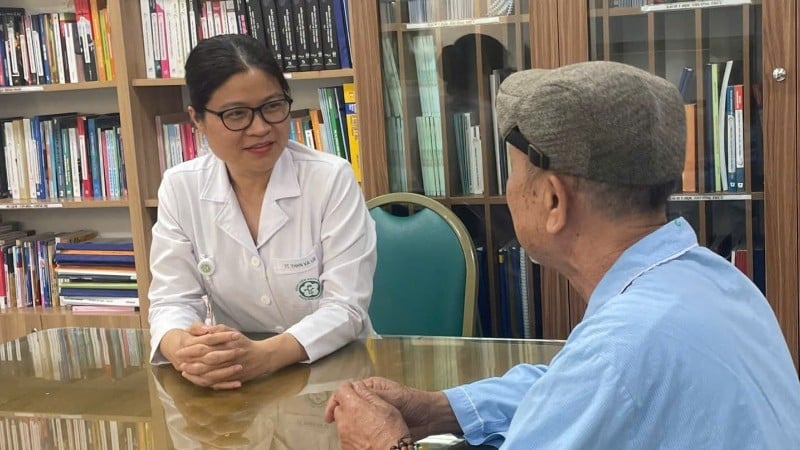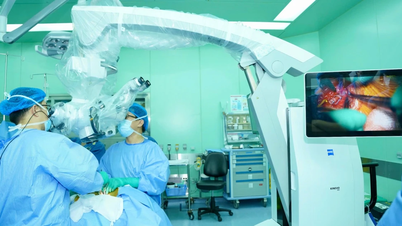
According to this expert, there are two fundamental differences between genetic testing and traditional cancer screening methods.
The primary purpose of genetic testing is to assess a person’s genetic risk of developing cancer in the future, looking for inherited gene mutations that may predispose a person to one or more types of cancer. This will allow people at high risk to be screened earlier and more frequently.
Additionally, some genetic tests can detect tumors that are still “microscopic,” meaning they cannot be seen with conventional methods such as imaging or endoscopy. However, these tests are not yet widely used in clinical practice.
In fact, genetic testing can now detect genetic mutations linked to cancer. Well-known genes include BRCA1 and BRCA2 - two genes that are closely linked to the risk of breast and ovarian cancer (in women), as well as prostate and pancreatic cancer (in men).
However, this expert also said that there is no standard age for people to consider genetic testing to detect cancer risk. This depends mainly on personal and family risk factors, not simply age.
According to the recommendations of most health organizations, genetic cancer testing should not be performed on a large scale for all healthy, asymptomatic people with no obvious risk factors (such as family history).
The prescription of this genetic test requires specific consultation with a doctor. Currently, cancer screening by genetic testing is indicated for cases with high risk of hereditary cancer from 18 years of age and older according to the doctor's advice.
Some high-risk groups may consider genetic testing. Group 1 includes people with a personal history of cancer that suggests a genetic factor: Cancer diagnosed at a young age (usually under 50); ovarian cancer (epithelial), fallopian tube, or primary peritoneal cancer; male breast cancer; triple-negative breast cancer, especially if diagnosed before age 60; pancreatic or metastatic/high-risk prostate cancer at any age; more than one primary cancer; certain rare cancers such as medullary thyroid cancer, retinoblastoma, or adrenal cortex cancer.
Group 2 is people with a family history of cancer that suggests a genetic factor: Having a first-degree relative (parent, sibling, child) who has been identified as carrying a hereditary cancer gene mutation: This is an indication for testing (testing specifically for that mutation); having multiple relatives (two or more people on the same side of the family) with the same type of cancer or cancers related to the same genetic syndrome; having relatives diagnosed with cancer at a young age (usually under 50 years old); having relatives with rare cancers or cancers related to genetic factors (such as ovarian cancer, male breast cancer, pancreatic cancer).
Source: https://nhandan.vn/phat-hien-som-ung-thu-di-truyen-thong-qua-xet-nghiem-gene-post914950.html


![[Photo] Solemn opening of the 1st Government Party Congress](https://vphoto.vietnam.vn/thumb/1200x675/vietnam/resource/IMAGE/2025/10/13/1760337945186_ndo_br_img-0787-jpg.webp)

![[Photo] General Secretary To Lam attends the opening of the 1st Government Party Congress](https://vphoto.vietnam.vn/thumb/1200x675/vietnam/resource/IMAGE/2025/10/13/1760321055249_ndo_br_cover-9284-jpg.webp)


















![[Photo] Solemn opening of the 1st Government Party Congress](https://vphoto.vietnam.vn/thumb/402x226/vietnam/resource/IMAGE/2025/10/13/1760337945186_ndo_br_img-0787-jpg.webp)














































































Comment (0)